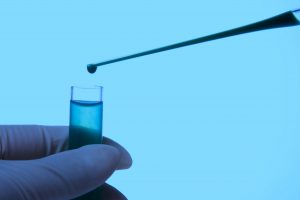 By: Matthew Fischer
By: Matthew Fischer
Through two public channels this month, the FDA further solidified its stance on the innovative field of regenerative medicine. First, in an article published in the New England Journal of Medicine (NEJM), Dr. Scott Gottlieb, FDA Commissioner, and Dr. Peter Marks, Director of the FDA’s Center for Biologics Evaluation and Research (CBER), co-wrote a new paper entitled “Balancing Safety and Innovation for Cell-Based Regenerative Medicine.” On the same day of this publication, the FDA hosted a “Grand Rounds” webcast with Dr. Steven Bauer, Chief of the Cellular and Tissues Therapy Branch within CBER. Taken together, these actions suggest a continued effort by the FDA to take a strong position against predatory clinics touting unapproved therapies while extending an open invitation to industry developers for expedited treatment to encourage innovation.
In the NEJM paper, the authors began with a general outline of the new regulatory framework recently released by the agency but most importantly, detailed the agency’s current take on where their thinking stands and the delicate balance between safety and innovation. The authors stated that “[their] aim is to refashion our traditional tools for regulation to meet the challenges and opportunities presented by such highly innovative products as cell-based regenerative medicine.” The authors acknowledged the amount of time and effort that goes into regulatory submissions and discussed the Regenerative Medicine Advanced Therapy (RMAT) program introduced by the 21st Century Cures Act. This designation allows sponsors of a product that is intended for life-threatening conditions to obtain accelerated approval. As of last December, the FDA has received 43 requests for RMAT designation and granted 13 of the requests as of this month. Another interesting highlight was the offer of “tools” from the agency to individuals or small groups in an effort to make the expedited pathways available to developers other than large companies. In contrast, the “Grand Rounds” webcast focused on how scientists are examining strategies and methods to predict the reliability of how certain stem cell therapies will perform.
There is a tremendous amount of interest in creating new standards that will facilitate the development of regenerative medicine products. This information released by the FDA is evidence of the agency’s effort to generate a different approach for a highly innovative field such as regenerative medicine as opposed to the traditional approach taken in more mature fields. All in all, both combined, to the reassurance of many, indicate that the agency will follow through with its intention to increase enforcement on bad actors yet carefully provide expedited pathways for new effective treatments.
